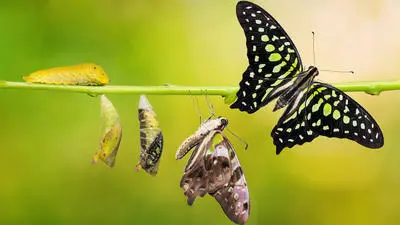Life as Process
John Dupré
About the Course
We think of ourselves, and all lifeforms, as things: we are organisms, made of smaller things like organs, which themselves are made of even smaller things, like cells. But this may be a deep-rooted metaphysical mistake, with problematic implications for our understanding of how we evolved, how we work, and who we are.
Is change an illusion, or the only certainty? What exactly is a thing, and how does it differ from a process? Why is our default state not stability, but death? And how much activity, both small-scale and continuous, and large-scale and historical, is required for stability? How does understanding ourselves as processes rather than things help us understand medicine and illness, and specifically why cancer is so uniquely dangerous? How can we understand the relationship between organisms and species, and is it possible to have a coherent system of classification?
By the end of the course, you will have learned:
- Why the discovery of atoms confirmed an unscientific way of thinking about things.
- Why philosophers have an obsession with ‘medium sized dry goods’.
- Why our bodies lack clear and definite boundaries.
- Why the classical liberal idea of humans as independent individuals is fundamentally flawed.
- Why the real mystery about cancer is how we avoid it so well.
- Why organisms are not individuals, but species are.
- The difference between collaboration and cooperation, and why it matters.
As part of the course there are in-video quiz questions to consolidate your learning, suggested further readings to stimulate a deeper exploration of the topic, and discussion boards to have your say.
IAI Academy courses are designed to be challenging but accessible to the interested student. No specialist knowledge is required.
About the Instructor
-
John Dupré
John Dupré is a philosopher of science. He is the director of the ESRC Centre for Genomics in Society and professor of philosophy at the University of Exeter.
Course Syllabus
-
Part One: The Story of Our LivesHow did a mechanistic view of the world come to dominate our way of thinking about the world around us? Dupré explores how this history informs the problems of the present.
-
Part Two: Rewriting Our ScienceFrom viruses and cancer to personal identity, Dupré examines recent discoveries in light of this new view before suggesting how we should do things differently from now on.
Suggested Further Readings
- Dupré, J. and Nicholson, D. J. (2018). A manifesto for a processual philosophy of biology. In Everything Flows: Towards a Processual Philosophy of Biology, eds. Nicholson, D. J. and Dupré, J., Oxford University Press, Oxford, 1-38.
- Simons, P. (2018) Processes and Precipitates. In Everything Flows: Towards a Processual Philosophy of Biology, eds. Nicholson, D. J. and Dupré, J., Oxford University Press, Oxford, 1-38.
- Nicholson, D. J. (2018). Reconceptualizing the Organism: From Complex Machine to Flowing Stream. In Everything Flows: Towards a Processual Philosophy of Biology, eds. Nicholson, D. J. and Dupré, J., Oxford University Press, Oxford, 1-38.
- Seibt, Johanna, "Process Philosophy", The Stanford Encyclopedia of Philosophy (Winter 2018 Edition), Edward N. Zalta (ed.), URL = <https://plato.stanford.edu/archives/win2018/entries/process-philosophy/>.
- Dupré, J. (2017). The metaphysics of evolution. Interface focus, 7(5), 20160148


